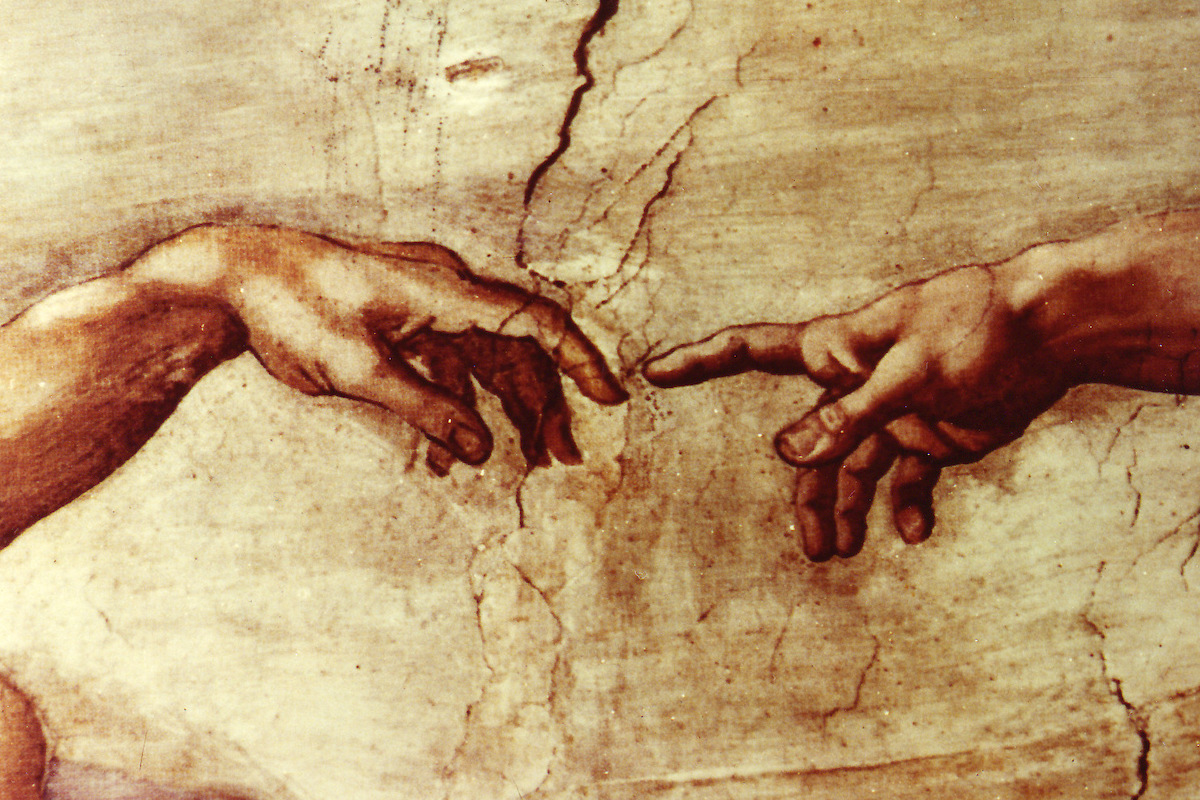recent
The Academic Quarrel over Determinism
Still, the universe is full of things that seem irrefutably evident and yet can’t be well explained or understood.

A Professor of biology at Williams College, Luana Maroja, recently wrote a piece for the Atlantic describing her great difficulty in getting students to accept the expert consensus on many issues in her field of study. Biology has been a great source of tension in intellectual spaces for a long time now, and this doesn’t seem due to change anytime soon. More often than not, biology seems to be the lynchpin upon which the fiercest disputes among intellectuals turn. Why does biology produce so much rancour?
Sam Harris recently interviewed author Jarred Diamond on his podcast. During the course of that discussion, Diamond revealed that he had been forced to increase security at his personal residence when some colleagues threatened him 10 years ago. Additionally, he had two bodyguards accompany him to a university lecture after an “angry anthropologist” threatened to disrupt his remarks.
Diamond hasn’t been an enthusiastic promoter of biological explanations for human affairs. On the contrary, his 1997 book, Guns, Germs, and Steel, vigorously disputed the notion that biology alone can explain the power and wealth of nations and ethnic groups. Diamond offers a comprehensive overview of the mechanisms by which ecology and geography have provided people in some parts of the world, particularly Europe, with an unfair advantage. And yet, this has hardly endeared Diamond to the academic enemies of biological determinism. Diamond attests that the vitriolic criticism he has endured is partly because his hypothesis supports “geographic determinism” and his adversaries are hostile towards a view of history and society which implies that the “human spirit counts for nothing.”
This identifies the crux of the great modern-day “war of ideas.” Some intellectuals pursue accuracy because they require certainty, and this need lends itself to a belief in determinism. Academic disdain for determinism caused biological explanations of human behavior to fall out of vogue among the intelligentsia during the twentieth century. Consequently, Adam Smith and John Stuart Mill are held in higher esteem than Charles Darwin when it comes to understanding human affairs.
A Fundamental Clash
The great political economists held that our trials and our triumphs are our own responsibility. For biological determinists, they are encoded in our DNA sequence. In a deterministic worldview, whatever happens comes down to something that is written somewhere. Biology lends itself to determinism. The development of quantum physics created new and vexing problems for the deterministic worldview, and led some of the world’s eminent physicists to conclude that the universe contains “irreducible uncertainty.”
Albert Einstein disagreed. He believed everything in the universe to be pre-determined, including the result of a coin toss, and the roll of a die. Einstein and his contemporary Niels Bohr engaged in a public scholarly rivalry over their differing interpretations of quantum mechanics. Bohr asserted that we could not know the position and velocity of a sub-atomic particle simultaneously with any certainty. Einstein said that we could. Bohr thought that the probability of a sub-atomic particle’s location was irreducible to any kind of certainty about its location. Einstein thought that we were yet to derive the formulation that provides us with certainty.
Today, most professional physicists believe that processes at the sub-atomic scale don’t always occur in a definite, linked sequence of cause and effect events. The future cannot be precisely known or determined from the present. Nevertheless, some intellectuals remain loyalists to Einstein’s view. During a recent appearance on Joe Rogan’s podcast, Eric Weinstein argued that we haven’t discovered fundamental uncertainty at the quantum level; we’ve only discovered meaningless answers to bad questions. The mathematical problems that quantum physicists sought to solve were poorly framed or understood, and this is why their solutions don’t yield definite answers.
A Challenge to Two Centuries of Intellectual History
The quarrel over biology comes down to something very simple; determinists hope to obtain the clearest possible picture of what is currently happening and what will happen next. What could possibly be wrong with trying to verify the exact impact that a particular DNA strand will have on a person’s future and with other similar lines of inquiry?
Many—if not the majority of—intellectuals do indeed believe that there’s something wrong with this, because they understand the profundity of the philosophical and cultural revolution that has occurred. People have cast off destiny in favour of agency. We no longer suppose that a God or forces beyond our control are dictating who will rule a country, who will till a field, who will serve tea, who will live and who will die. We place ever-greater faith in the decisions of individuals. We have rejected a world in which decision is the providence of the few. We have accepted that we don’t know where everyone should live, what they should study, and how they should dress, and so we leave it up to them.

It shouldn’t come as a surprise that many intellectuals dislike the idea that biology plays a determinative role in human affairs. With a DNA-driven view of the social world, we risk resigning ourselves to fatalism. Our future is no longer written in the stars. Now it’s written in our DNA. They contend that applying scientific knowledge and understanding to a broad array of social issues (a process they call “scientism”) also erodes our agency. It’s no longer the word of God that determines exactly how we should live; now it’s the latest findings in medicine and cognitive neuroscience.
A Predetermined Meeting of the Minds between Antiquity and Modernity
Sam Harris has adamantly argued against the existence of free will. He notes that a theory of free will presupposes that before we make a decision something occurs inside of us that is completely separate from the cause and effect chain of events preceding it in the outside world. Whatever occurs inside of us must be completely different from a random roll of the dice, as well. Given the absurdity of such a mental process, Harris rejects the possibility of its existence. This view is actually very close to the majority of philosophers and scientists who think about such things. To argue otherwise seems to flirt with pseudoscience or magical thinking.
Regardless of the truth of whether our actions are subject to determinism or individual will, it certainly doesn’t feel like our actions are being dictated by a script that has already been written. When it comes time to make a decision it doesn’t seem as though we’re watching our self in the third person and helplessly wondering, “What will he do now?” It feels as though we are making a decision in real time for which we must take moral responsibility. Making a choice doesn’t feel remotely similar to watching someone else make a choice. This sense of things is dismissed as an illusion by serious, contemporary neuroscientists. Laboratory evidence and coherent reasoning, they say, demand it.
Still, the universe is full of things that seem irrefutably evident and yet can’t be well explained or understood. Sam Harris has also devoted much attention to consciousness. Why does it exist and what exactly is it? How does something become “aware” of something else? Godel’s incompleteness theorems indicate that there are truths about numbers that cannot be proven through calculation or computation. In math and physics there are singularities; times and places where all “rules” break down or don’t seem to apply. Is it far-fetched to suppose that conscious choice is real, but rules, processes, and definitions don’t apply?
It’s easy to understand why a belief in pre-destination has been, and continues to be, so widespread across cultures. In The Poetic Edda, a character justifies why they are embarking on a risky mission with the words: “On one day all my lifespan was shaped, all my days laid down.” There is no risk. What will happen, will happen. In the second season of the docuseries Tales by Light, Natte—a young man from Varanasi in India—says, “I work for food, to make ends meet. Tomorrow my destiny could change. It all depends on God. If it is written in your destiny it will occur. If it is not written, it will not occur.” Pre-destination has profound moral and psychological consequences for people in dire circumstances.
When Sam Harris defends his position on free will, the moral implications of his view are among his most important considerations—so much folly, misfortune, and tragedy are ultimately no one’s fault. Accepting our lack of freedom should give us cause for greater compassion and understanding.
And in that case, we may need to prepare ourselves for a torrent of behaviour that makes compassion and understanding all the more essential. In modern democratic nations, uncultivated and highly educated people alike scoff at genetic explanations for human behaviour. If people were perfectly at ease with notions of determinism—genetic and ultimate—what kind of behaviour could we expect from them?
Prisoners in Chains, all Preordained?
Needless to say, there is substantial evidence that people who believe in free will, or at least believe that they are in control of their own lives, are more prone to exhibit good mental health and productive, ethical behaviour. There is a not inconsiderable moral dilemma here. As we illuminate the role of DNA and other fixed factors, we will acquire knowledge that should allow us to improve and save countless lives. On the other hand, if more and more people come to accept the idea that they’re not choosing their thoughts and actions, their subsequent behaviour may guarantee that a lot more lives are in need of saving.
Thinkers like Harris and Weinstein are preoccupied with how we build a less risky world, which may be partly why their thinking appeals to conservatives. However, it is worth remembering the well-established relationship between risk and reward, because whether or not we believe in free will may turn out to be the Pascal’s Wager of the twenty-first century. With that in mind, any professional gambler worth their salt should bet on free will. There is just too much about the universe that we don’t understand, and the potential pay-off from agency is staggering.






